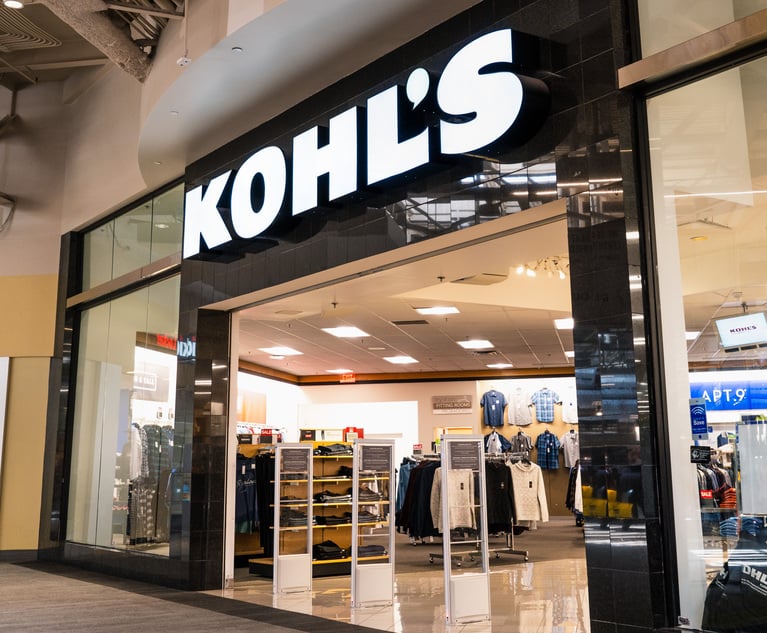As the COVID-19 virus has proliferated across the United States, so have reports of widespread shortages of specific consumer goods, including masks, hand sanitizers and paper products. These reports were quickly followed by claims of price gouging, a practice of profiteering in a time of public crisis that is prohibited under a patchwork of state and federal laws. These laws can be enforced by federal authorities, state attorneys general and, in certain states, by a private right of action that can support an award of penalties and other remedies if the conduct is proven. An understanding of this regulatory framework is imperative for companies that may find it necessary to raise prices on regulated products during a crisis.
California Regulations
The triggering event under most of these laws is the declaration of an emergency by a local, state or federal authority. For example, in California, Penal Code § 396 prohibits increasing prices on necessities by more than 10% within 30 days after an emergency has been declared by the president, the governor or a city or county executive officer, which period can be extended.
Gov. Gavin Newsom declared a state of emergency in California on March 4, 2020, something that at least 23 other states and the federal government had done by March 13. Following the emergency declaration, district attorneys in San Diego, Los Angeles and Orange County have already promised to prosecute incidents of price gouging.
By March 18, sellers allegedly offering masks, gloves, disinfectants and toilet paper for as much as 20 times their pre-emergency retail price on websites such as Facebook, Craigslist and OfferUp were arrested in San Diego. These charges can lead to a sentence of up to one-year imprisonment or a $10,000 fine and civil enforcement actions with penalties of $5,000 per violation. To defend these charges, the sellers must demonstrate that the increased price was due to increases in materials or labor that the seller incurred.
Other States’ Regulations
Not all anti-price-gouging laws are as specific as California’s. Other states prohibit price increases that are “unconscionable,” without an objective or numerical definition of the term. Further complicating the issue, not all states allow for the passing along of increased costs as a defense. Equally significant, some states apply the prohibition to all segments of the distribution chain. The impact of these laws with respect to COVID-19 is readily apparent: Amazon already faces a putative class action in Florida for allegedly unconscionable price increases on items such as toilet paper and hand sanitizers in the wake of the emergency declarations.
Federal Enforcement, Criminal Liability
The federal government is also actively policing a wide range of pricing issues connected to the emergency declarations. Last week Attorney General William P. Barr announced that the “Department of Justice stands ready to make sure that bad actors do not take advantage of emergency response efforts, healthcare providers, or the American people during this crucial time.” The DOJ also warned that the newly formed Procurement Collusion Strike Force is on “high alert” and will not hesitate to bring criminal charges against companies and individuals who engage in price-fixing or rigging bids for much-needed health equipment.
U.S. attorney’s offices across the country have followed suit warning the public of alleged fraud schemes on the heels of the emergency declarations and have vowed to investigate and prosecute such cases. To be sure, there are a number of criminal laws in the arsenal of federal prosecutors to facilitate these investigations. For example, 18 U.S.C §§ 1040 (fraud in connection with emergency benefits), 1341 (mail fraud) and 1343 (wire fraud) all target or enhance penalties for fraud in connection with emergency relief efforts. Nor is it difficult to imagine a federal investigation stemming from unpopular price increases in the weeks and months following the COVID-19 emergency declarations.
Stay Protected: Consult With Legal Counsel
Undoubtedly, many companies in the business of distributing goods to consumers will face tremendous financial pressures as a result of the COVID-19 crisis. Before substantially increasing prices on goods that might be considered necessities, companies would be well-advised to consult an attorney familiar with the patchwork of state and federal laws regulating such conduct in emergency conditions.
Robyn Crowther is co-managing partner of Steptoe & Johnson LLP’s Los Angeles office. She is a trial lawyer who focuses on commercial disputes. Ashwin Ram is a partner in Steptoe’s Los Angeles office who focuses on white-collar criminal defense. He previously served as an assistant US attorney in the Major Frauds Section of the U.S. Attorney’s Office in Los Angeles.
NOT FOR REPRINT
© 2024 ALM Global, LLC, All Rights Reserved. Request academic re-use from www.copyright.com. All other uses, submit a request to [email protected]. For more information visit Asset & Logo Licensing.


 Robyn Crowther (left) and Ashwin Ram of Steptoe & Johnson (Courtesy photo)
Robyn Crowther (left) and Ashwin Ram of Steptoe & Johnson (Courtesy photo)




